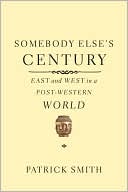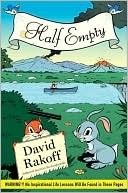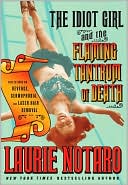Somebody Else's Century: East and West in a Post-Western World
Search in google:
From one of our foremost experts on Asia and its history comes this brilliant dissection of the relationship between East and West. In three succinct essays, Patrick Smith investigates the East’s endeavor to adopt Western technology and all that we consider modern. He underscores a crucial distinction between modernization (the simple emulation of the West) and the true task of “becoming modern.” He examines the strategies that three prominent cultures—those of Japan, China, and India—evolved as they encountered materialistic foreign cultures and imported ideas while defending their own traditions. The result, Smith explains, has often been called “doubling”—a division of the self wherein Asians are receptive to Western products and ideas but simultaneously reject these same imports to emphasize the validity of the “unmodern.” Employing an exceptional combination of reflection and reportage, Smith also examines the often troubled relationship Asians have with history as a result of their encounters with the West. Finally, he considers Asia’s twenty-first-century attempt to define itself without reference to the West for the first time in modern history. The author foresees a new balance in the East-West dialogue—one in which the East transcends old ideals of nationhood (another Western import). Smith asserts that there are fundamental lessons in Asia’s long struggle with the modern: In the twenty-first century, the East will challenge the West just as the West once challenged the East. This is a book of exceptional significance and extraordinary depth.Publishers WeeklyWritten explicitly for a Western audience, this searching and philosophical text eschews the demographic and statistics-driven approach to the rise of Asia, opting instead for an essayistic and existential meditation on modernity and modernization. Smith (The Nippon Challenge) focuses on China, India, and Japan and skips nimbly between topics as varied as raids on an Indian temple dating back a millennium, the impact of the Opium Wars on China's development, and Nietzsche's reflections on travel and "the foreign." The author examines each country's relationship to economic transformation and to their pasts, describing the new century as a "post-Western" era, one in which Westerners will confront the challenge that this book suggests has largely defined the contemporary Asian experience, the sense of living in an era that does not belong "to us." This demanding, rich book provides few answers, but offers a valuable intellectual frame for approaching the evolving relationship between the East and the West. (Sept.)
A Note on NamesIntroduction 3Calligraphy and Clocks 37The Buddhas at Qixia 113The Skyward Garden 189An Acknowledgment 241








